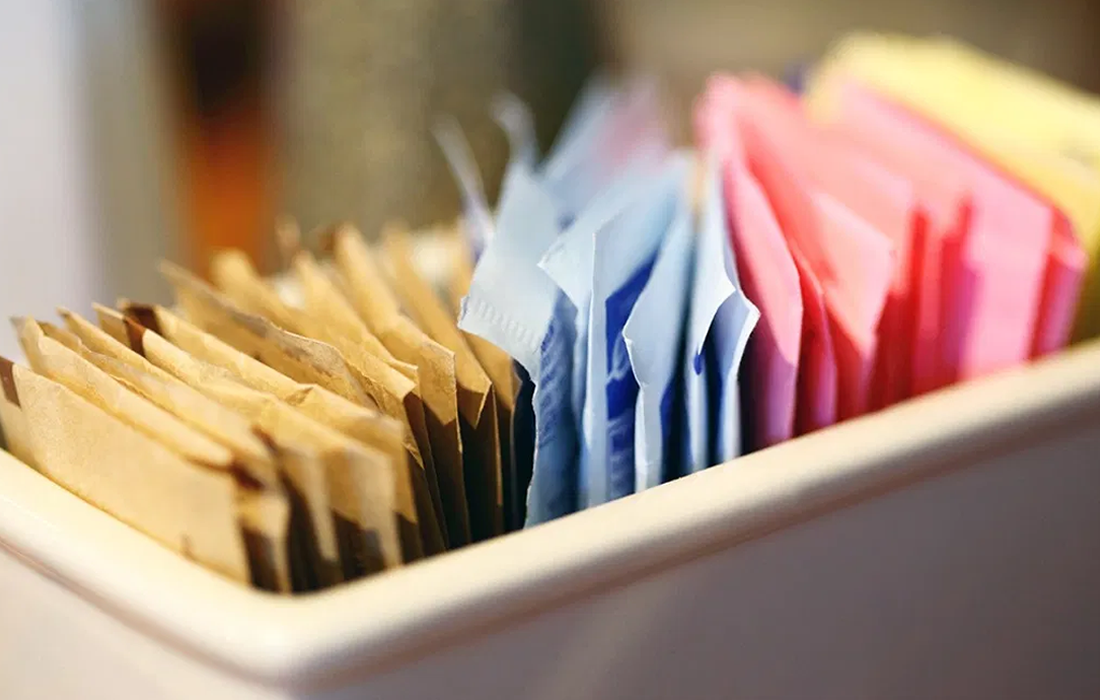Nutrition and Supplements
New Study Findings Suggest That Artificial Sweeteners Increase Cravings
What are Nonnutritive Sweeteners (NNSs)?
Nonnutritive sweeteners (NNSs) are increasingly consumed as an alternative to nutritive sweeteners as a way to satisfy the desire for sweet taste while providing few or no calories. Although NNSs are now used by more than 40% of US adults, the health consequences of NNS consumption are still highly debated. Overall, the existing literature shows mixed results on the effects of NNS on appetite, glucose metabolism and body weight, with no clear consensus on whether NNSs are beneficial or harmful for our health.
Prior work provides evidence that brain areas involved in regulation of taste, reward, and homeostasis may respond differently to NNSs compared with nutritive sugars, yet a number of questions still remain.
The majority of previous studies have focused on individuals with normal weight and males. Prior studies have shown that appetite responses to food cues are greater in individuals with obesity and in female participants, and exposure to NNS compared to regular sugar caused an increase in energy intake and weight gain in female rats.
New Study In NNS and Calorie Intake
A new study published in the journal JAMA Network Open by researchers from the Keck School of Medicine at the University of Southern California in Los Angeles suggest that drinks containing low calorie artificial sweeteners may not be as helpful for weight loss as many may assume.
It included participants aged between 18 and 35 years, nonsmokers, weight stable for at least 3 months before the study visits, nondieters, not taking medications (except oral contraceptives) and with no history of diabetes, eating disorders, illicit drug use or other medical diagnoses. A total of 74 patients were recruited.
Each participant attended three experimental sessions, having fasted overnight prior to arriving. Each individual would consume 300 ml of an NNS-sweetened drink, a sugar-sweetened drink or as a control, water. After they consumed their drink, researchers presented them with pictures of high calorie foods and used functional MRI scans to record activity in the regions of their brain associated with appetite and food cravings and also monitored their blood sugar, insulin and metabolic hormone levels. Finally, after each session, they offered the participants a snack buffet and recorded the amount of food each individual consumed.
Findings of the Research
The scans and blood work showed significant effects that suggest that NNS-sweetened drinks may actually make limiting calorie intake harder.
- Functional MRI scans revealed that women and those with obesity consuming NNS-sweetened drinks led to more activity in brain areas associated with appetite and cravings than drinking sucrose-containing drinks.
- A drop in levels of metabolic hormones that signal being full after consuming NNS-sweetened drinks compared with sucrose-containing drinks.
- After consuming NNS-sweetened drinks, women (not men) ate more snacks at the buffet at the end of each session.
The study researchers concluded that like previous studies, they found that their study adds more strength to previous findings. One of the researchers said that “Our brain is smart and clearly cannot be fooled; when it sees that you are consuming a food or drink that has a very sweet taste without the calories to show for it, it looks for a caloric sugar-based food to compensate for it.” Their results suggest that drinking artificially sweetened drinks may trick the brain into feeling hungry, which may result in more calories being consumed.
Source:
Yunker AG, Alves JM, Luo S, et al. Obesity and Sex-Related Associations With Differential Effects of Sucralose vs Sucrose on Appetite and Reward Processing: A Randomized Crossover Trial. JAMA Netw Open. 2021;4(9):e2126313. doi:10.1001/jamanetworkopen.2021.26313
Image from:
https://www.healthline.com/nutrition/sucralose-vs-aspartame

